If you are a cat owner, you have probably noticed that your cat does a lot of weird things. Munching on grass is one of those cat activities that weirds out feline owners the most. Grass isn’t a common part of your pet’s diet. In fact, some cats will vomit right after consuming it. So then, why do cats eat grass from time to time and should you be worried?
Is Eating Grass Dangerous or Beneficial for the Cat?
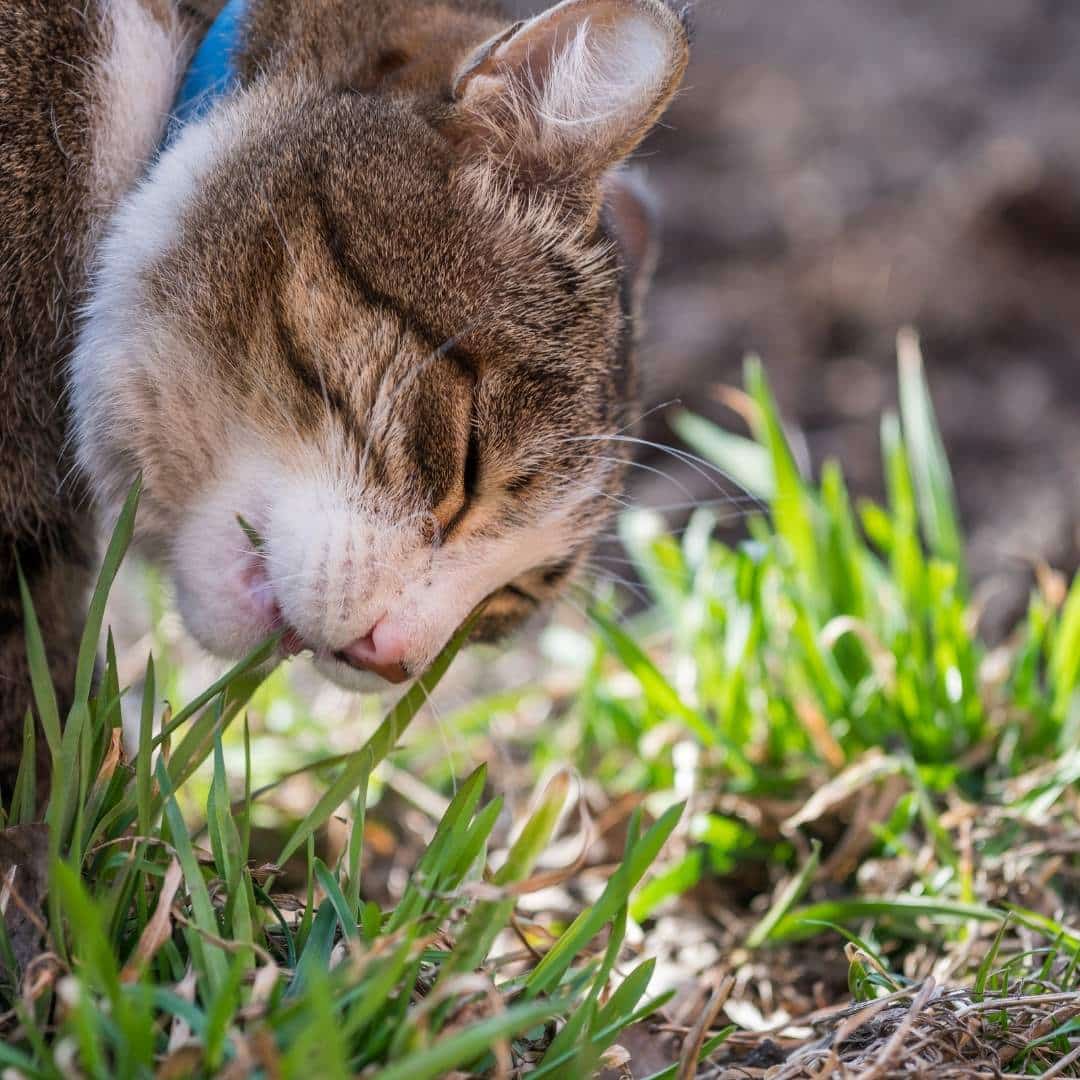
Almost every cat will nibble on grass from time to time. This is such a common activity. Can this harm your beloved pet?
Luckily for you and your cat, eating grass isn’t dangerous for your feline friend. On the contrary, it has some benefits. The juices that are in the grass contain folic acid that is essential to cat’s health.
Young kittens will have their supply of folic acid through their mama’s milk. If they don’t intake enough of it, their growth may be slowed down. Of course, there isn’t any proof that cats can magically know they have a deficiency in folic acids.
Though this is probably one of the main reasons why cats eat grass, it isn’t the only one. You have most likely heard of the saying that cats nibble on grass when they have an achy tummy. This one is also true, but we’ll have to get a little bit deeper.
Grass Is a Natural Laxative
Cat’s stomach is similar to human’s stomach. This means that it can’t digest grass.
When your cat consumes it, her bowels lack the necessary enzymes to break down vegetable matter, such as cellulose.
This will make your cat vomit. So then, why do cats eat grass if it makes them sick? Do cats enjoy vomiting? Probably not.
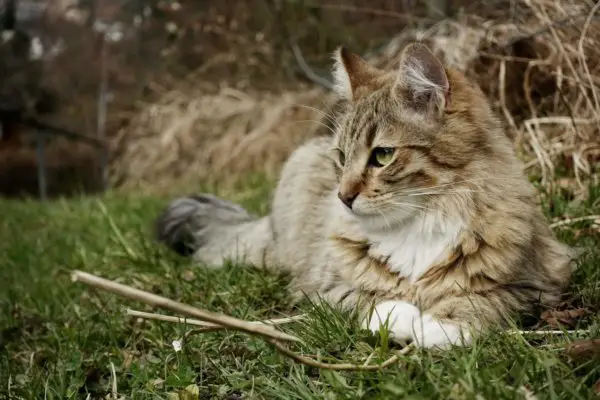
Though your kitty most likely isn’t fond of throwing up, sometimes regurgitating is good for her.
Cats will intake a lot of fur while they’re cleaning themselves. Sometimes, this fur will go out through the other end of the bowels.
However, fur will often clog the digestive tract, which can cause stomachache. If you have an outdoor cat, hair isn’t the only problem. Felines eat their prey as it is.
They don’t separate edible from inedible parts, so they will also consume bones, feathers, claws and other body parts.
Combine this with their cleaning habits and you have a disaster waiting to happen.
When your cat eats too much grass, it will probably make her sick. She will have to eject it in one way or another.
And with it, she’ll throw up anything that was clogging her bowels. From fur ball to something indigestible she might have eaten, everything will go out!
Sure, vomiting is yucky, but your cat will feel better afterwards.
It Has Healthy Juices
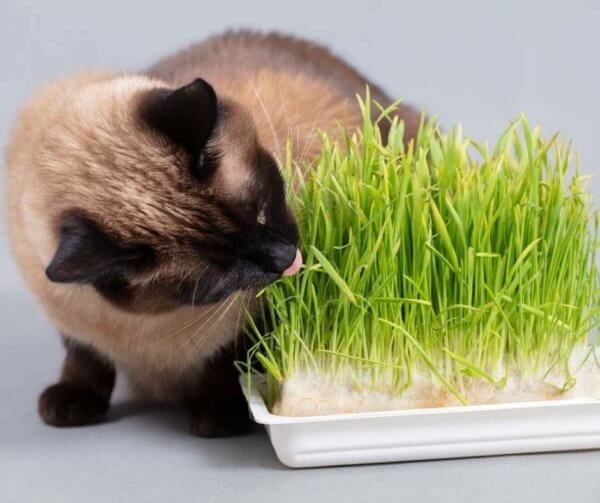
As we’ve already mentioned, grass is filled with folic acid – otherwise known as vitamin B9. While scientists aren’t sure if cats are aware of this, this makes it highly beneficial for them.
Folic acid is an important vitamin that helps production of hemoglobin. Without enough of it, some cats can even suffer from anemia!
For cats who have bad blood image, grass is like some sort of wheat grass shake or an iron pill. However, there is still no proof that this is the sole reason why cats eat grass. If you suspect your cat has anemia because she eats grass, you should still take her to a veterinarian.
Just eating greens is not enough if she has higher deficiency and you might have to supplement her food. Don’t change cat’s diet before consulting with the vet first!
Parasite Relief
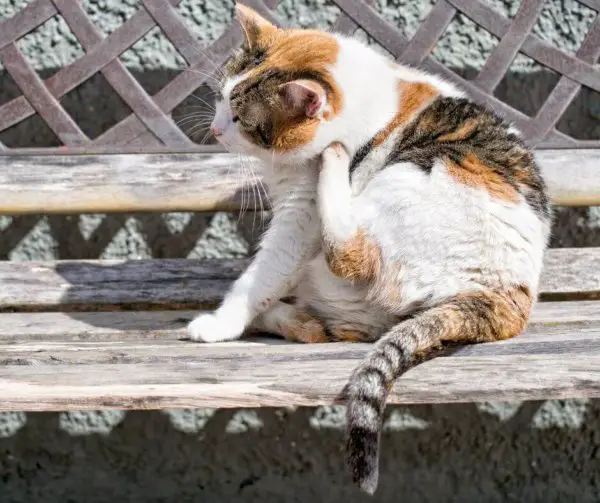
Another reason why vomiting can be a good thing: it is a way to get rid of nasty parasites.
This is a habit that is believed to be inherited from house cats’ wild ancestors. House cats don’t tend to have a worm problem.
In the past, however, cats and other carnivores commonly consumed gastrointestinal parasites, such as roundworms or tapeworms.
Eating grass would make cat throw up or get diarrhea. This way, parasites would get out of the system, providing relief for cat’s stomach.
Unless you have an outdoor cat, there aren’t many ways your pet could get infected with worms. This is a purely instinctual habit. This is also the reason why kittens eat grass more than adult cats.
Kittens have a weaker immune system that couldn’t deal with parasites as effectively as a grown cat would. This is also a possible reason why dogs eat more grass than cats do.
Next to different food habits like soft food, cats also tend to avoid each other’s feces, while dogs are known to… Be a bit more unhygienic when it comes to that business.
If your cat eats grass outside, be cautious as she might eat some parasitic eggs by accident. It’s always recommended to cultivate the grass yourself, just to be safe.
Stress Eating
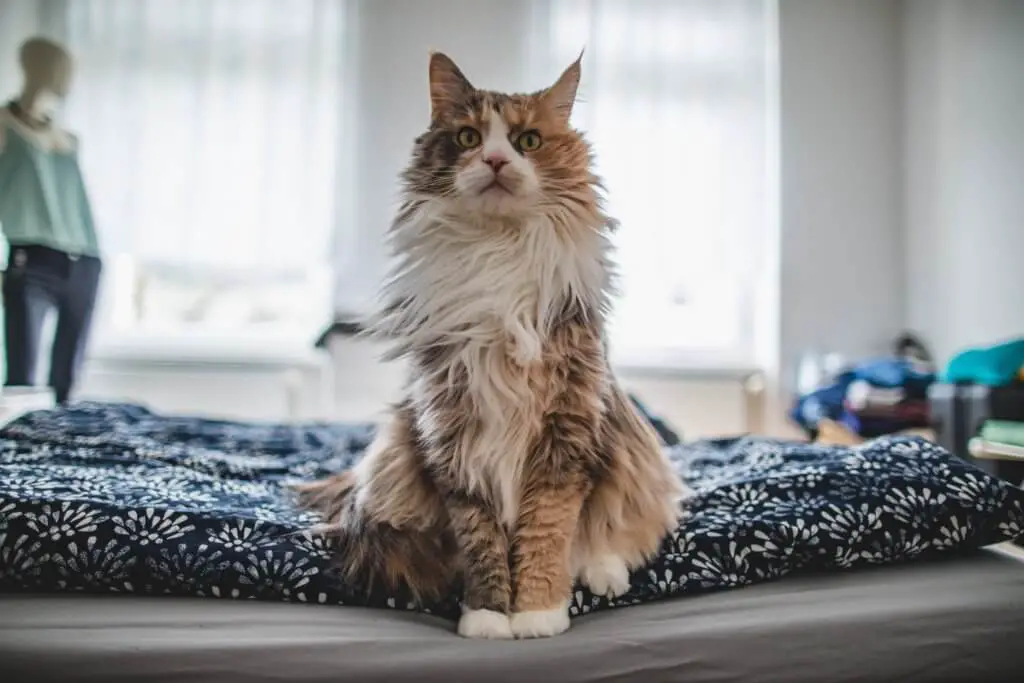
Just like their human parents, cats can suffer from anxiety. This can lead to what we like to call ‘stress eating’.
When your feline friend is anxious, she will have to find an outlet. Sometimes, this is the main reason why cats eat grass.
Watch if your cat exhibits some other signs of displacement behavior. This may include over-grooming, excessive vocalization, or some other unusual change in behavior.
Cats can get stressed from many things. Most common reason is change of environment. When you do the renovation or change the furniture placement, your cat might feel confused and stressed. Sometimes the cause of stress can be some illness or pain.
If you think there is nothing that caused the stress, take her to a vet.
Precautions
Even though eating grass is beneficial for a cat, there are some dangers that come with it.
Independent Ireland states that grass can get stuck in the cat’s nose, which can cause sneezing.
The only way to help her is to physically remove the grass strand. If this happens, you shouldn’t do it without a professional to prevent further damage. Another problem can occur if your cat digests pesticides or herbicides.
Some house plants such as Azaleas and Hyacinth are extremely toxic for cats. This is why you should never let your cat eat whatever plant she can reach. When your pet eats something that is poisonous, she might experience serious health issues, or even death.
If you are wondering which plants are poisonous, you can check this list provided by the ASPCA. The safest thing you can do is to keep your indoors and to remove any toxic plants that you have. This way you can prevent her from eating anything that is bad for her.
Despite them acting tough, cats are gentle beings. Just one wrong bite can be a potential risk for their entire health.
Should You Grow Your Own Grass?
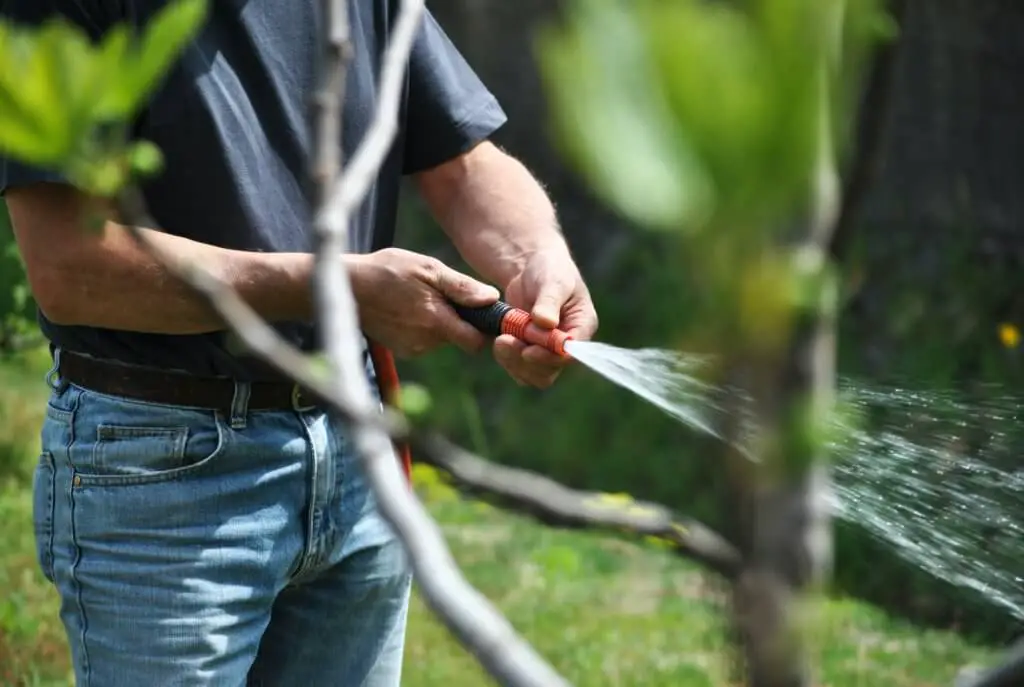
If your cat likes to munch on the greens, it might not be a bad idea to grow it for her. Outside grass, as well as some house plants, can be toxic for your four legged friend.
The safest way for her to have her share of folic acids is if you provide it to her. You can buy or cultivate many kinds of indoor grass for your cat to chew on.
This way, their instincts will be satisfied while they are remaining safe. Even if she does throw up, you can rest assured knowing that she didn’t poison herself.
You can find cat grass seeds in most local pet shops.
Usually, they don’t require anything but water to grow. Within what is usually a week, your cat can have a nice, healthy treat for herself.
This might even prevent her from eating your house plants.
Another grass that you can grow for her is catnip. Most cats love this plant and will enjoy chewing it.
Don’t worry, despite the rumors catnip won’t make every cat tipsy. In fact, only some felines have inherited this trait. Yes, getting tipsy on catnip is in cat’s genetics!
Keep in mind that catnip shouldn’t be planted in the garden, as it is invasive.
Read Also: Can Cats Eat Goldfish Crackers
When to Worry?
Although there isn’t a definite and precise reason why cats eat grass, you shouldn’t worry right away. Usually nibbling on the herbs means a small stomachache at the worst.
However, if this is a behavior that repeats, you should look for other worrying signs.
If your cat refuses to eat, or eats more than usual, this might mean that she’s stressed or in pain. Also, look after other symptoms such as lethargy or signs of discomfort.
If vomiting is prevalent, this might also indicate some more serious digestive issues. If you can’t find a safe reason why your cat eats grass, contact a vet right away.
